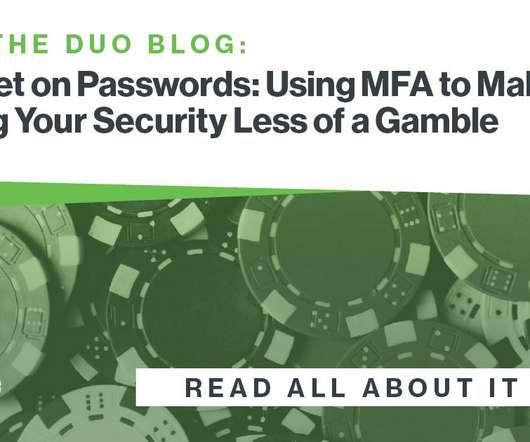Don’t Bet on Passwords: Using MFA to Make Insuring Your Security Less of a Gamble
Duo's Security Blog
OCTOBER 18, 2022
By this point, we’re all familiar with the list of requirements for a strong password: unique, long, memorable, free from any personal information… But even the strongest passwords can pose a risk if they’re the only thing standing between your users and enterprise content. trillion USD annually by 2025?











Let's personalize your content